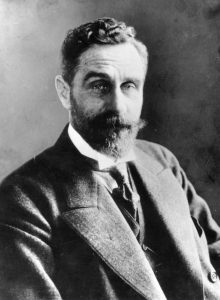Roger Casement (1864-1916) - Irish Patriot and Humanitarian

Roger Casement was born in Dublin in 1864 to an Anglo-Irish Protestant family. He attended school in Ballymena and later worked for the British colonial service in Africa, where he witnessed the brutal exploitation of native peoples by European powers. This experience awakened his sense of justice and fueled his passion for Irish independence.
Casement returned to Ireland and joined the Irish Republican Brotherhood, where he became a prominent figure in the movement for Irish independence. He worked tirelessly to gather support for the cause, both at home and abroad.
In 1913, Casement traveled to Germany to seek support for an Irish rebellion against British rule. During World War I, he worked with the German government to organize an Irish brigade to fight for Irish independence. However, his efforts were thwarted when his ship was intercepted by the British navy and he was arrested and charged with treason.
Casement’s trial was highly controversial, and he was ultimately found guilty and executed by hanging in 1916. However, his legacy as an Irish patriot and humanitarian lives on. He is remembered for his courage in exposing the atrocities committed by colonial powers in Africa, as well as his tireless work for Irish independence.
In addition to his political activities, Casement was also a passionate humanitarian. He campaigned against the exploitation of native peoples in Africa and worked to improve their living conditions. He was also an advocate for the rights of workers, and he spoke out against the mistreatment of Irish workers by British employers.
Casement’s life and legacy continue to inspire people around the world who are fighting for justice and equality. He is remembered as a true Irish patriot and a champion of human rights.